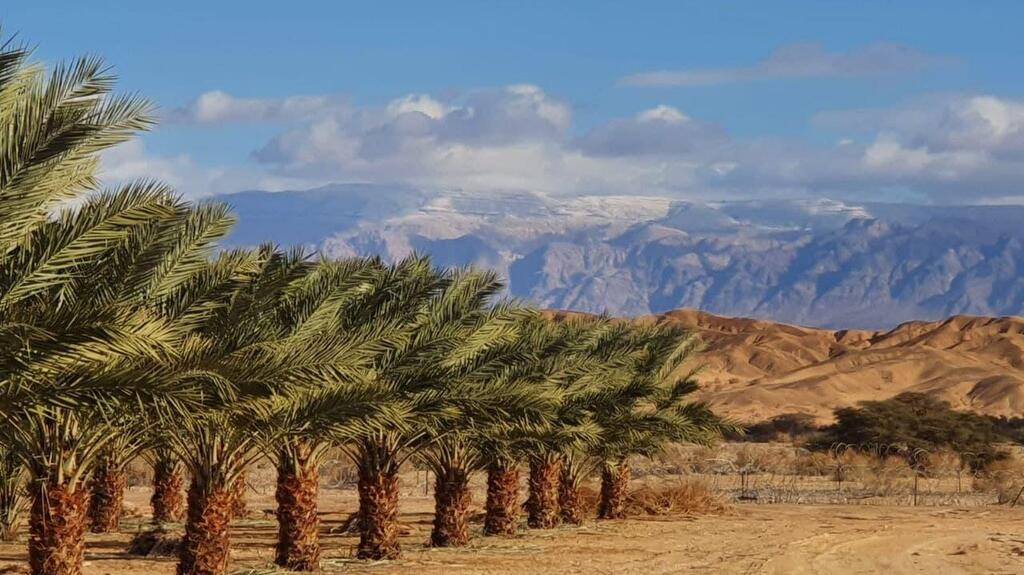Using genes from the Dead Sea to produce drought-resistant plants: this is one of the techniques developed by PlantArcBio.
This Israeli company, based in Givat Hen, near Tel Aviv, has already filed six patents to improve the properties of plants, to make them more productive or resistant to insects. In some palm groves across the country, the trees are affected by an invisible disease, which kills them one after the other.
It is the red weevil, a parasite from India that infested the Middle East about 30 years ago, and which is now invading southern Europe. To save the plants from it, PlantArcBio has developed an ecological solution that resembles the technology used in anti-Covid vaccines.
"We use RNA (Ribonucleic acid) to target the larva of the insect. When it eats this RNA, the larva dies inside the tree. It's ecological because it only targets one gene of this insect, and it has no consequences on bees or humans, so it is an excellent alternative to the dangerous insecticides that are currently used," explained Dror Shalitin, founder and co-CEO of the company.
This product, developed in collaboration with the company Gadot Agro, should be on the market within two years. PlantArcBio, created in 2014, thus aims to improve the properties of plants, by introducing new genes found in nature.
"I started this company with a dream: to take many genes in nature, from different ecological niches, and test them directly in plants, to improve their performance. We then developed a platform that allows us to take millions of genes in nature and put them in the plants, one by one. Then we test the plants to see which ones make them more resistant and productive," said Shalitin.
The company took soil samples from the Dead Sea, and extracted millions of genes from them, from microorganisms surviving in the desert.
"We have identified many plants that had a gene that made them more resistant to drought. Currently, these genes are being tested on plants that have a very important role, such as corn or soybeans," he said.
PlantArcBio also improves the productivity of cereal plants, this time by modifying gene expression. According to the company’s founder, the treated plants produced twice as many ears of corn as the control plants. The company also tests rapeseed in the field, and obtains a significant increase in yield by diffusing interfering RNA on the plant.
For cost-related issues, the Israel Innovation Authority supervised additional tests conducted in India by Rallis India, a local biotech company. The company put the gene into a corn plant, then grew the seeds with virtually no water, along with other control corn seeds. As a result, only the startup's corn plants survived. But that's not all, since they also gave two to three times more grain than normal corn.
The results showed a 60 percent to 250 percent increase in yield of improved maize seeds grown under drought conditions with PlantArcBio genes.
"We believe that these exceptional results will provide a real solution to global food insecurity, and to the challenge of climate change," the company said.
Listed on the Israeli stock exchange a little over a year ago, it is now valued at $11.6 million.
Reprinted with permission from i24NEWS




